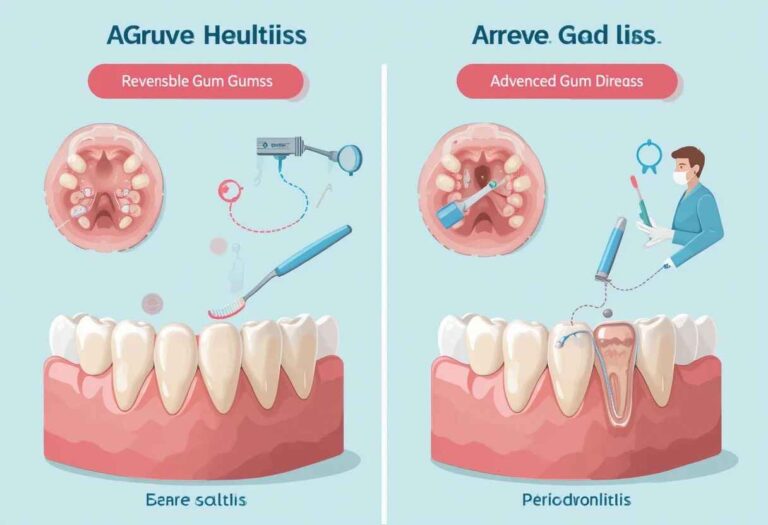Vinculo Health Medical – Essential Insights For Modern Care!
Vinculo Health Medical is an approach that emphasizes creating meaningful, trust-based relationships between healthcare providers and patients. The term “vínculo,” which comes from Portuguese, means bond or link. In healthcare, this concept represents a strong commitment to understanding patients beyond their illnesses, respecting their unique contexts, and working together toward better outcomes.
This method is especially valued in systems focused on primary care, where continuity, empathy, and shared responsibility are essential. By prioritizing connection, Vinculo Health Medical can improve the quality of care, increase patient satisfaction, and make healthcare more ethical and humane. It is about seeing patients as whole people and building genuine partnerships to solve health challenges more effectively.
Why Vinculo Health Medical Matters in Modern Healthcare?
In today’s fast-paced and often fragmented health systems, many patients feel like just another number. Vinculo Health Medical offers a different path by centering relationships. This model improves communication, reduces errors, and builds mutual respect.

It encourages providers to truly listen, understand patients’ needs, and involve them in decisions about their care. When patients trust their providers, they are more likely to follow treatment plans, attend follow-up visits, and share important health details. This leads to better outcomes not just for individual patients but for communities overall.
What Are the Key Principles of Vinculo Health Medical?
Building effective vinculo requires several important principles that guide everyday healthcare practices:
- Trust: Patients must feel secure sharing personal details, knowing their information is handled with care and confidentiality, which encourages honesty and builds the foundation for meaningful, long-term therapeutic relationships in healthcare.
- Continuity: Seeing the same provider regularly allows a deeper understanding of patient history, preferences, and unique challenges, enabling personalized, consistent care that strengthens the bond and promotes better health outcomes over time.
- Empathy: Healthcare should be delivered with compassion and respect, recognizing the whole person behind the illness, validating emotions, and fostering a safe, supportive environment where patients feel truly heard and valued.
- Collaboration: Both patient and provider share responsibility for setting health goals, making decisions together, and developing treatment plans, creating an equal partnership that encourages active involvement and shared accountability for outcomes.
- Communication: Open, clear, and culturally sensitive dialogue ensures mutual understanding, prevents misinterpretations, and respects diverse backgrounds, forming the backbone of trust and effective patient-provider relationships in every healthcare setting.
What Are the Historical Roots and Evolution of Vinculo in Healthcare?
While the word “vínculo” is commonly used in Brazilian health policy, the idea has roots worldwide. Historically, healthcare was paternalistic—doctors decided everything with little patient input.
Over time, however, the field recognized the importance of involving patients in their own care. Brazil’s Family Health Strategy is a strong example of institutionalizing vinculo: multidisciplinary teams serve neighborhoods, build long-term relationships, and focus on prevention.
Globally, similar shifts can be seen in patient-centered medical homes, general practice continuity in the UK, and culturally respectful Indigenous health models. All these approaches value the provider-patient bond as central to good care.
What Are the Challenges in Building Vinculo Health Medical?
Despite its many benefits, building strong vinculo in healthcare is not always simple. Overcoming these challenges requires thoughtful planning, training, and policy support to ensure every patient receives consistent, respectful, and connected care that meets their unique needs while fostering genuine, long-term, trust-based relationships between patients and healthcare providers.
Time Constraints:
Busy clinics and heavy patient loads often limit the time providers can dedicate to each visit. This reduces opportunities for meaningful conversations, makes it harder to truly understand patient needs, and can result in rushed, impersonal care that weakens trust and prevents the deep, consistent bonds essential for effective, patient-centered healthcare.
Staff Turnover:
Frequent changes in healthcare staff disrupt continuity of care, making it difficult for patients to build lasting, trusting relationships with familiar providers. Each new provider must start from scratch, reducing comfort and confidence, complicating communication, and hindering the development of the understanding and empathy needed for strong, effective vinculo in care.
Fragmented Systems:
Disconnected healthcare services make it challenging to provide seamless, coordinated care. Patients may feel lost navigating multiple providers, while vital information can be missed or poorly shared. This fragmentation undermines trust, complicates treatment plans, and weakens the sense of partnership needed for building strong, collaborative, and patient-centered healthcare relationships over time.
Cultural Barriers:
Differences in language, traditions, or cultural expectations can make communication difficult and limit mutual understanding. Without cultural sensitivity and respect, providers risk alienating patients, damaging trust, and missing important health details. Overcoming these barriers is essential for creating inclusive, empathetic, and respectful relationships that support strong vinculo in diverse healthcare settings.
Access Inequities:
Marginalized or underserved communities often face barriers like cost, transportation, or discrimination that limit their ability to receive consistent care. These inequities make it harder to build long-term relationships with providers, reducing opportunities for trust, understanding, and collaborative problem-solving essential for delivering truly equitable, high-quality, and patient-centered healthcare.
How Vinculo Health Medical Works in Practice?
Vinculo Health Medical is not just theory. In practice, it means:
- Consistent Providers: Patients see the same doctors or care teams over time, building familiarity and trust that enable personalized, continuous care tailored to individual needs, fostering stronger relationships and better health outcomes.
- Active Listening: Providers ask thoughtful questions and genuinely hear patients’ responses, creating a safe space for open dialogue, validating concerns, and ensuring care plans align with patients’ real experiences and priorities for improved satisfaction.
- Understanding Context: Care considers each patient’s family, culture, and social environment, recognizing the wider influences on health, respecting diversity, and delivering solutions that are both relevant and responsive to individual life circumstances.
- Team-Based Care: Healthcare involves coordinated teams of doctors, nurses, social workers, and community health agents who collaborate to address the whole person’s needs, ensuring comprehensive support and reducing gaps in treatment.
- Patient Involvement: Patients actively participate in setting goals and making decisions about their care, encouraging empowerment, shared responsibility, and partnership that leads to better adherence, satisfaction, and sustainable health improvements.
What Are the Benefits of Vinculo Health Medical for Patients and Providers?

A strong vinculo offers valuable benefits that make healthcare more effective, respectful, and humane. By focusing on trust and collaboration, it improves outcomes, supports safe and efficient care, increases satisfaction, and promotes equity. This relationship-based approach benefits both patients and providers, creating a healthier, more connected healthcare experience overall.
Better Health Outcomes:
Patients trust providers and follow treatment plans more reliably, leading to improved long-term health. Consistent, supportive relationships help detect problems early, manage chronic conditions effectively, and encourage healthy behaviors. This strong bond ensures care is better tailored to each patient’s needs, resulting in stronger, more sustainable overall health outcomes.
Higher Patient Satisfaction:
Patients feel respected, heard, and valued when providers actively listen and involve them in decisions. This respectful, patient-centered approach builds trust and comfort, reduces anxiety about healthcare visits, and creates a meaningful sense of partnership. Patients leave appointments more confident, satisfied, and willing to engage in their ongoing care.
Reduced Errors and Safer Care:
Clear, consistent communication between patients and providers lowers misunderstandings and medical errors. Strong relationships help providers better understand patient histories, preferences, and needs, ensuring safer, more personalized care plans. This approach prevents avoidable complications, improves treatment accuracy, and delivers higher-quality, more reliable healthcare with better patient safety overall.
More Efficient, Focused Care:
Familiar, trusting relationships between patients and providers streamline healthcare delivery by reducing unnecessary tests, duplicated procedures, and avoidable specialist referrals. Vinculo helps providers quickly identify true patient needs, prioritize important issues, and deliver timely, targeted solutions, saving time and resources while ensuring patients receive focused, effective, and cost-efficient care.
Promotes Equity and Inclusion:
Stronger bonds help providers understand cultural, social, and economic factors that influence health. By listening respectfully and showing cultural sensitivity, vinculo encourages more inclusive, equitable care. This approach ensures underserved or marginalized communities feel welcome and supported, working to reduce health disparities and improve access to quality care for everyone.
What Is the Role of Vinculo Health Medical in Primary Care Settings?
Primary care is the ideal environment for building vinculo. Unlike hospital-based care, primary care is ongoing. Patients see their providers regularly, enabling stronger relationships over time.
This long-term perspective allows early detection of health problems, personalized prevention strategies, and better chronic disease management. Countries with strong primary care systems often have better health outcomes overall, showing the power of relationship-centered care.
What Are Effective Strategies to Strengthen Vinculo in Healthcare?
Strengthening vinculo in healthcare means creating trust-based, lasting relationships between providers and patients. It requires intentional strategies that prioritize empathy, continuity, and patient involvement to make care more personal, respectful, and effective, improving outcomes and satisfaction for everyone involved in the healthcare process.
Continuity of Care:
Ensuring patients consistently see the same provider or care team builds familiarity and trust. This long-term connection allows for better understanding of patient histories, needs, and preferences, enabling highly personalized, responsive care that feels supportive and reliable over time.
Empathetic Communication:
Actively listening to patients, validating their experiences, and using clear, respectful language fosters understanding and trust. This approach makes patients feel heard and valued, strengthens the provider-patient bond, and helps avoid misunderstandings that can compromise care quality and outcomes.
Team-Based Collaboration:
Involving multidisciplinary teams, including doctors, nurses, social workers, and community health agents, ensures holistic care that addresses diverse needs. Collaboration improves coordination, reduces gaps in services, and supports the patient with a well-rounded approach that considers all aspects of health.
Cultural Competence and Sensitivity:
Respecting and learning about patients’ cultural backgrounds, beliefs, and social contexts strengthens trust and improves care relevance. Culturally sensitive care recognizes differences, reduces barriers to communication, and makes healthcare more inclusive, equitable, and welcoming for all patients.
Patient Empowerment and Involvement:
Encouraging patients to participate in setting health goals and making care decisions builds a true partnership. When patients feel ownership of their care plans, they are more engaged, motivated, and committed, leading to better adherence, satisfaction, and long-term health improvements.
How Does Technology Impact Vinculo Health Medical?
Technology plays a complex role in Vinculo Health Medical by either supporting or challenging strong patient-provider relationships. Tools like telemedicine improve access for remote patients, patient portals enhance transparency and engagement, and electronic records enable seamless care coordination.
However, relying too heavily on technology can reduce personal interactions that build trust. Providers must balance these digital conveniences with genuine human connection, ensuring that technology enhances rather than replaces the empathy, listening, and understanding essential for maintaining strong, meaningful, and effective bonds in healthcare..
What Is the Ethical Dimension of Vinculo Health Medical?
Building trust-based relationships in healthcare demands strong ethical commitment to ensure care remains safe, respectful, and effective. Confidentiality is essential for protecting patient information and fostering openness. Maintaining clear professional boundaries while showing empathy prevents misunderstandings.
Equity ensures all patients receive respectful, fair care without favoritism. Transparency means being honest about what is known and uncertain, building trust through clear communication. Together, these ethical practices uphold the integrity of vinculo, supporting meaningful, compassionate bonds that serve both patients and providers in delivering the highest quality of care.
How Can Healthcare Teams Be Trained in Vinculo Health Medical?
Healthcare education traditionally emphasizes technical skills, but supporting vinculo requires broader training. Teams need strong communication skills for active listening and clear explanations that build trust. Cultural humility encourages openness to diverse patient experiences, ensuring respectful, tailored care. Trauma-informed care helps providers recognize and respond sensitively to past trauma.

Collaboration skills promote effective teamwork across disciplines. Ongoing professional development reinforces these vital abilities throughout a provider’s career, ensuring they maintain empathy, understanding, and the capacity to build meaningful, lasting relationships that improve patient outcomes and satisfaction in every setting.
How Can Policy Support Vinculo Health Medical?
For vinculo to thrive in healthcare, supportive policies are crucial. Governments and organizations can encourage patient assignment to specific teams to ensure continuity. Funding longer consultations for complex cases allows deeper understanding and trust. Incentives for ongoing care relationships strengthen bonds.
Supporting multidisciplinary teams enables comprehensive, coordinated care. Providing training in communication and cultural competence ensures providers can connect meaningfully with diverse patients. These policy changes remove systemic barriers, promote equity, and make relationship-based, patient-centered care sustainable, fostering a healthcare system that prioritizes trust, respect, and effective, long-term partnerships.
What Are the Future Directions for Vinculo Health Medical?
Healthcare is always evolving, and Vinculo must adapt to stay effective and meaningful. Future directions include integrated care models that unite physical, mental, and social services for truly holistic support. There will be a stronger focus on social determinants, tackling root causes like housing and food security.
Community participation will grow, empowering people to shape services that meet their needs. Digital health innovations will aim to enhance, not replace, personal relationships. By embracing these changes, Vinculo Health Medical can continue delivering fairer, more compassionate, and patient-centered care for everyone.
FAQs:
What makes Vinculo Health Medical different from traditional healthcare?
Vinculo Health Medical focuses on building strong, trust-based relationships between patients and providers. Unlike traditional models that can feel rushed or transactional, it emphasizes continuity, empathy, and shared responsibility, leading to more personalized, effective, and respectful care experiences that truly consider the whole person.
How can providers start incorporating vinculo into daily practice?
Providers can begin by actively listening to patients, maintaining consistent care relationships, showing cultural sensitivity, and involving patients in decision-making. Small changes in communication style and prioritizing time to understand patients’ lives can make a big difference in strengthening trust and connection over time.
Why is cultural humility important for Vinculo Health Medical?
Cultural humility ensures that providers respect and learn from each patient’s unique background, values, and experiences. It helps avoid misunderstandings, builds trust, and delivers care that is relevant and welcoming to all patients, making vinculo stronger and healthcare more equitable and effective.
Can Vinculo Health Medical improve chronic disease management?
Yes, strong vinculo supports better chronic disease management by fostering consistent follow-up, trust in recommendations, and open discussion about challenges. Patients are more likely to adhere to treatment plans and lifestyle changes when they feel understood, respected, and supported by a trusted care team.
How does vinculo benefit healthcare providers themselves?
Vinculo offers providers more meaningful, rewarding relationships with patients. It reduces burnout by creating personal connections and a sense of shared purpose. Providers also gain better insight into patient needs, which leads to more effective care plans and improved professional satisfaction overall.
Conclusion:
Vinculo Health Medical represents a transformative approach that centers on genuine, trust-based relationships between patients and providers, moving beyond clinical transactions to human connection. By prioritizing empathy, continuity, cultural respect, and shared responsibility, it creates a more ethical, effective, and inclusive healthcare experience.
Embracing this model can lead to improved outcomes, higher patient satisfaction, and healthier communities overall. It challenges healthcare systems to invest in meaningful bonds that recognize patients as whole people, ensuring care that is truly personal, respectful, and responsive to the diverse needs of every individual it serves.
Related post:






